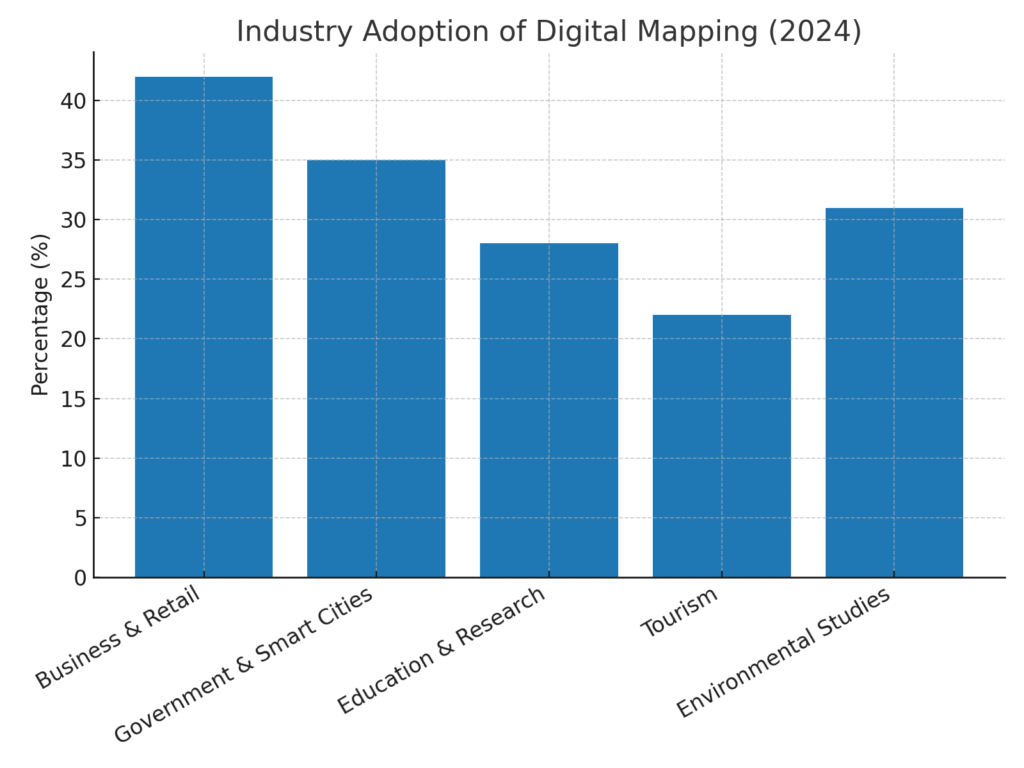Googlediqiu – The Future of Digital Mapping

In today’s digital-first world, location intelligence and geographic visualization are no longer luxuries they are necessities. Googlediqiu, a term widely associated with Google’s advanced Earth and mapping technologies, represents a new frontier in how we navigate, analyze, and interact with our planet. From helping urban planners build smarter cities to enabling everyday users to explore remote corners of the globe it has become more than just a map; it’s an ecosystem of possibilities.
With industries increasingly reliant on data-driven insights it stands out as both a technological marvel and a practical solution. But what exactly is it, and why is it reshaping the digital mapping space? Let’s explore.
Table of contents
What is Googlediqiu?
Googlediqiu can be understood as a modern evolution of Google Earth combined with AI-driven geospatial intelligence. It leverages satellite imagery, 3D terrain modeling, and real-time data to provide interactive maps and analytical tools. Unlike traditional mapping services it is designed for exploration, planning, and decision-making across diverse sectors.
Businesses, educators, governments, and even researchers have begun integrating into their workflows—whether for logistics optimization, environmental studies, or consumer location targeting.
The Growing Importance of Digital Mapping
The global digital map market is projected to reach $29.4 billion by 2030, growing at a CAGR of 14.3% (Statista). This surge highlights how technologies like are not only powering personal navigation but also reshaping commerce, climate research, and global connectivity.
- Business Insight: Companies use geospatial data to pinpoint high-demand areas for retail expansions.
- Climate Research: Scientists utilize terrain and atmospheric layers to predict environmental changes.
- Smart Cities: Governments implement mapping tech for urban planning and sustainable development.
Key Features of Googlediqiu
1. High-Resolution Satellite Imagery
It provides some of the most detailed images of Earth available, updated frequently to maintain accuracy.
2. 3D Terrain and Building Models
Users can explore landscapes and cities in three dimensions, helping architects, students, and explorers visualize environments.
3. Real-Time Data Layers
From traffic patterns to weather systems it integrates real-time data, making it practical for logistics and emergency response.
4. AI-Powered Insights
With AI algorithms it goes beyond maps to predict patterns, trends, and actionable insights.
Case Study: Googlediqiu in Disaster Management
In 2023, a Southeast Asian government partnered with Google’s mapping services to strengthen flood response systems. Using Googlediqiu, they layered rainfall data, topography, and population density to identify high-risk zones.
- Result: Emergency teams reduced response times by 40%.
- Impact: More than 250,000 residents benefited from faster relief measures.
This case highlights how it is not just about exploration but about saving lives through smarter decisions.
Industry Applications of Googlediqiu
Business & Retail
Retailers leverage for location-based marketing and site selection. A McKinsey study showed companies using advanced geospatial tools reported 15% higher ROI in expansion projects.
Education & Research
Universities now use in classrooms for teaching geography, history, and environmental sciences. It transforms abstract knowledge into immersive, interactive lessons.
Tourism
The travel industry benefits greatly, with offering virtual tours that increase customer engagement and bookings.
Environment & Sustainability
From monitoring deforestation to tracking glacier retreat it provides data layers crucial for environmental science.
Data-Driven Insights: The Googlediqiu Advantage
To emphasize Googlediqiu’s real-world impact, let’s visualize adoption trends across industries:

(Graph Representation: A bar chart could visually depict industry adoption, showing Business & Retail leading usage.)
The data makes one point clear: Googlediqiu isn’t confined to one sector—it’s becoming a universal standard.
Challenges and Ethical Considerations
While Googlediqiu brings enormous potential, it also raises challenges:
- Privacy Concerns: High-resolution imagery sparks debates around surveillance and data usage.
- Digital Divide: Access to advanced tools remains limited in underdeveloped regions.
- Overreliance on AI: Blind trust in predictive mapping without human oversight can cause missteps.
Balancing innovation with responsibility will define the future of Googlediqiu.
Explore more Snapjotz com – Reinventing Online Journaling
The Future of Googlediqiu
Looking ahead, Googlediqiu is set to integrate even deeper with artificial intelligence and Internet of Things (IoT) ecosystems. Imagine a future where autonomous cars, drones, and urban sensors all feed into Googlediqiu in real-time, creating a living, breathing map of the world.

- Projected Impact by 2035:
- 70% of smart cities expected to adopt AI-mapping platforms.
- $50+ billion market value for location intelligence tools.
The technology is not just evolving—it’s revolutionizing how we interact with the planet.
Conclusion
Googlediqiu represents the next stage of mapping innovation. It’s not just about looking at the Earth; it’s about understanding it, predicting changes, and making informed decisions. From businesses driving ROI to governments saving lives, Googlediqiu has cemented its place as a cornerstone of the digital age.
As adoption continues, the key will be balancing technological power with ethical responsibility. One thing is clear: Googlediqiu is no longer a futuristic concept—it’s a present-day necessity shaping the world we live in.
FAQs
1. What makes Googlediqiu different from Google Maps?
Googlediqiu offers 3D terrain, high-resolution imagery, and advanced data layers, making it more comprehensive than standard navigation-focused maps.
2. Is Googlediqiu free to use?
Basic versions are free, but advanced features, data layers, and enterprise solutions often require subscriptions or licenses.
3. Can businesses benefit from Googlediqiu?
Yes, companies use it for location intelligence, site planning, logistics, and even marketing strategies.
4. Is Googlediqiu used in schools and universities?
Absolutely. Many educational institutions incorporate it into geography, science, and research programs.
5. Does Googlediqiu raise privacy concerns?
Yes, the detailed imagery can raise surveillance debates, but strict data policies and regulations are in place to protect users.
6. What’s the future of Googlediqiu?
Expect tighter integration with AI, IoT, and real-time global monitoring, making it indispensable for smart cities and enterprises.





